July
The summer months at QF saw new sporting partnerships formed, healthcare and family police advanced, and opportunities for learning beyond the classroom provided – before the new academic year arrived.
Social Progress
Sports for SocietyAs the eyes of the sporting world turned to Paris, and the 2024 Olympic Games, a new collaboration harnessing the power of sport to strengthen society was announced in the French capital by Qatar Foundation (QF), Education Above All Foundation, and the International Olympic Committee (IOC).
The Team Qatar reception during the Games was the setting for the unveiling of a three-year project that will support the implementation of sport-for-good initiatives in over 10 countries, with the aim of nurturing more equitable, inclusive, and educated communities.
Focused on women and girls, people with disabilities, and people from marginalized communities, the project – part of the IOC’s Olympism365 strategy, which supports the advancement of the United Nations Sustainable Development goals – will develop localized solutions tailored to the needs, challenges, and aspirations of each country it benefits.
QF will lead its delivery in Qatar, including by building on its existing efforts and plans to expand inclusive sporting opportunities for women and girls, as the project unfolds over three phases up to 2027.
As the eyes of the sporting world turned to Paris, and the 2024 Olympic Games, a new collaboration harnessing the power of sport to strengthen society was announced in the French capital by Qatar Foundation (QF), Education Above All Foundation, and the International Olympic Committee (IOC).
The Team Qatar reception during the Games was the setting for the unveiling of a three-year project that will support the implementation of sport-for-good initiatives in over 10 countries, with the aim of nurturing more equitable, inclusive, and educated communities.
Focused on women and girls, people with disabilities, and people from marginalized communities, the project – part of the IOC’s Olympism365 strategy, which supports the advancement of the United Nations Sustainable Development goals – will develop localized solutions tailored to the needs, challenges, and aspirations of each country it benefits.
QF will lead its delivery in Qatar, including by building on its existing efforts and plans to expand inclusive sporting opportunities for women and girls, as the project unfolds over three phases up to 2027.
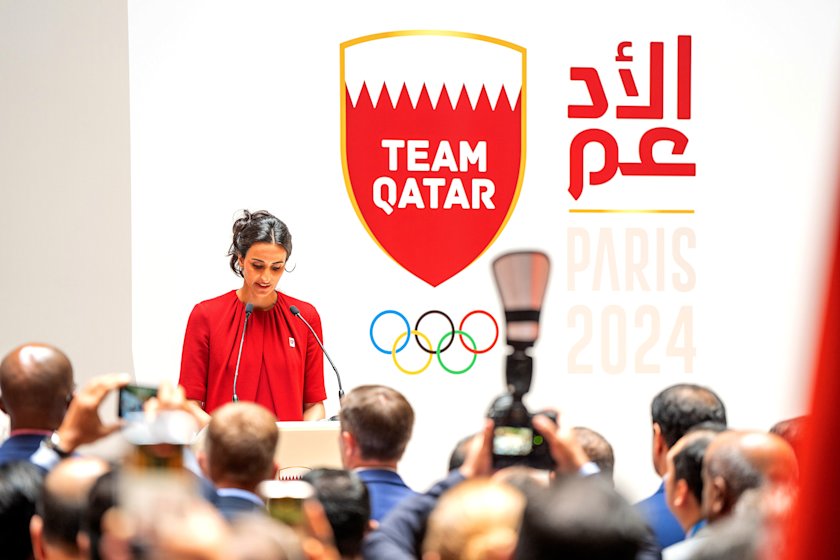
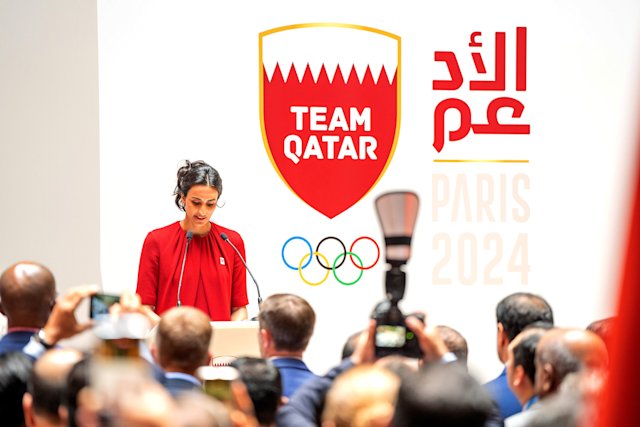
We believe everyone, regardless of their gender, ability, socio-economic status, or religious background, deserves equal opportunities to explore and share their potential with the world.
The project aims to:
- Support 50,000 children and youth through community sports programs, campaigns, policy and systems development, and partnerships.
- Train up to 5,000 coaches, teachers, and instructors to promote equality and inclusion through sports.
- Reach hundreds of thousands more young people worldwide through education-focused digital interventions
The ultimate goal of the project is to:
- Improve the personal situations of participants.
- Change mindsets and social attitudes around inclusion, equitability, education, and sports in the communities where it is delivered.
- Create impact that includes new policies and funding avenues in targeted countries, states, and provinces.
Social Progress
Supporting the FamilyOn the theme of strengthening societies, a landmark report analyzing why marriages in the Arab world succeed and fail during their first five years – and how problems in the early years of marriages can be addressed – was published by QF’s Doha International Family Institute (DIFI).
Produced in collaboration with the General Secretariat of the League of Arab States, the report outlines the key factors in stable marriages, and policy recommendations and programmatic elements designed to support couples in the early stages of their lives together.
“This study is pioneering in two ways,” explained Dr. Sharifa Noman Al-Emadi, Executive Director of DIFI. “First, it includes respondents from various Arab states; and second, it focuses on marital relations and offering efficient policy recommendations and interventions to support the continuity and sustainability of marriage.”
Over the summer, DIFI also collaborated with the United Nations and the Institute for Social Science Research to examine the impact of technological transformation and climate change on families; saw its participation in the Kazan Global Youth Summit lead the adoption of an action plan to integrate technology into children’s and young people’s lives; and co-organize the Fourth Gulf Family Policy Forum.
On the theme of strengthening societies, a landmark report analyzing why marriages in the Arab world succeed and fail during their first five years – and how problems in the early years of marriages can be addressed – was published by QF’s Doha International Family Institute (DIFI).
Produced in collaboration with the General Secretariat of the League of Arab States, the report outlines the key factors in stable marriages, and policy recommendations and programmatic elements designed to support couples in the early stages of their lives together.
“This study is pioneering in two ways,” explained Dr. Sharifa Noman Al-Emadi, Executive Director of DIFI. “First, it includes respondents from various Arab states; and second, it focuses on marital relations and offering efficient policy recommendations and interventions to support the continuity and sustainability of marriage.”
Over the summer, DIFI also collaborated with the United Nations and the Institute for Social Science Research to examine the impact of technological transformation and climate change on families; saw its participation in the Kazan Global Youth Summit lead the adoption of an action plan to integrate technology into children’s and young people’s lives; and co-organize the Fourth Gulf Family Policy Forum.
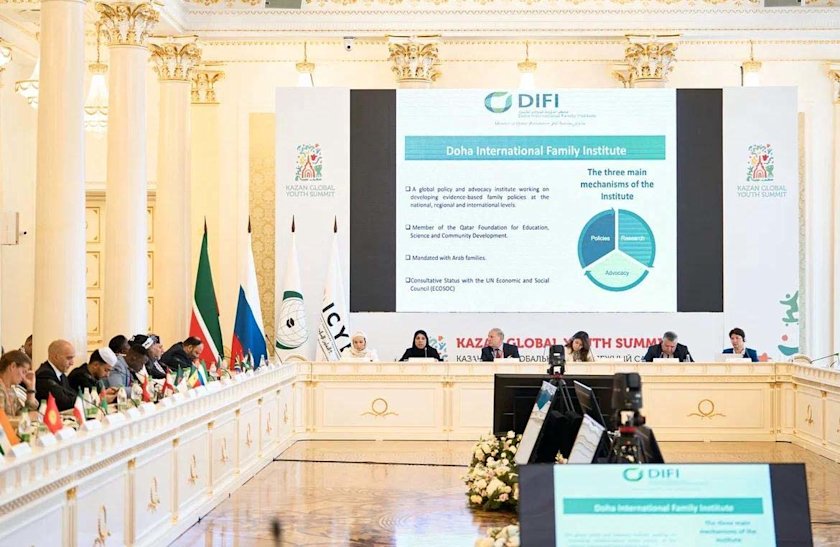
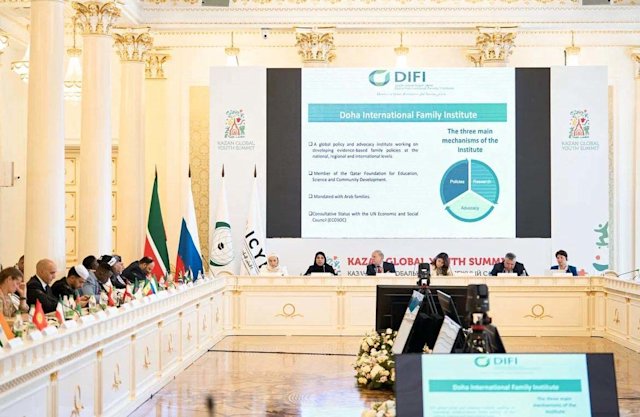
Findings from the DIFI report included:
- 30 percent of participants saying they experienced extra burdens, marital maladjustment, and responsibilities during the early years of marriage
- 72.5 percent said family stability and childbearing were their prime motive for marriage
- 72 percent said interest and good companionship were the key factor in a stable marriage
- Reasons for marital conflicts included unexpected behaviors, disputes over parenting styles, and differences in perceptions and attitudes between wives and husbands
The DIFI report into the early years of marriage made policy recommendations including:
- State-developed economic empowerment programs for new and future married couples.
- Prospective spouses to have medical examinations, including mental health assessments.
- Support for paternal and maternal leaves, workplace childcare, and flexible working hours for newlyweds and mothers
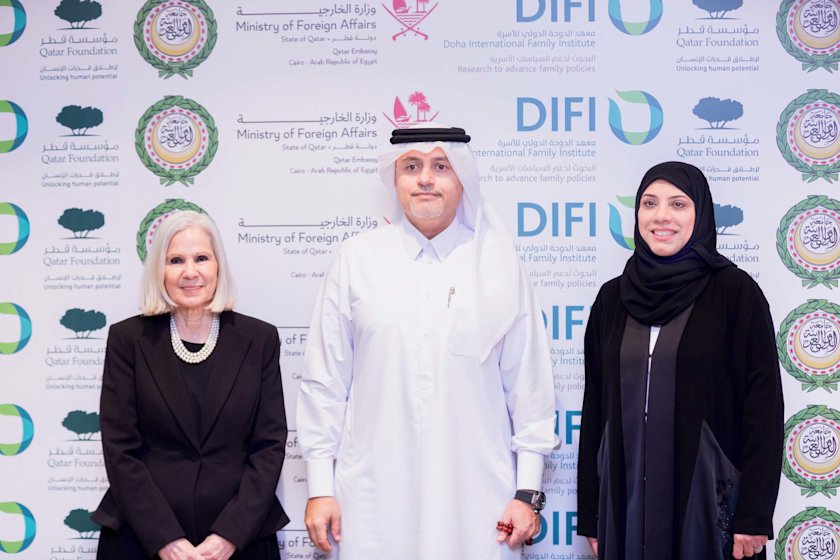
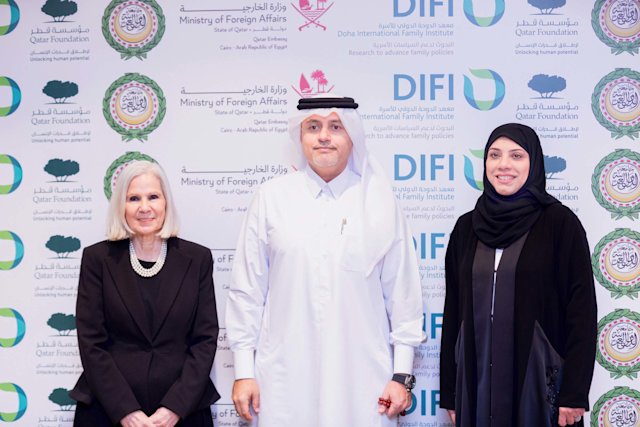
Precision Health, Social Progress
Unlocking InnovationEntrepreneurs and startups with groundbreaking ideas on how to tackle the world’s most urgent healthcare challenges were issued with an invitation to put forward their solutions by QF’s global healthcare initiative, the World Innovation Summit for Health (WISH).
Over the summer, WISH launched its 2024 Innovation Competition, giving those selected the opportunity to showcase their solutions and pitch them to global heath leaders at the WISH 2024 Summit later in the year.
The competition – with a specific focus on digital healthcare - comprises categories for ‘Young Innovators’, targeting health startups led by founders aged 30 and under, and ‘Innovation Showcases’ for startups that have had an established market presence for up to five years. As well as securing an international platform for their ideas, the successful innovators and entrepreneurs gain access to vital networking opportunities and support from industry experts.
“WISH believes that young entrepreneurs are vital to transformative health solutions, and this competition aims to provide them with a platform to showcase their early-stage startups,” said Maha El Akoum, Manager of Policy and Content, WISH.
Entrepreneurs and startups with groundbreaking ideas on how to tackle the world’s most urgent healthcare challenges were issued with an invitation to put forward their solutions by QF’s global healthcare initiative, the World Innovation Summit for Health (WISH).
Over the summer, WISH launched its 2024 Innovation Competition, giving those selected the opportunity to showcase their solutions and pitch them to global heath leaders at the WISH 2024 Summit later in the year.
The competition – with a specific focus on digital healthcare - comprises categories for ‘Young Innovators’, targeting health startups led by founders aged 30 and under, and ‘Innovation Showcases’ for startups that have had an established market presence for up to five years. As well as securing an international platform for their ideas, the successful innovators and entrepreneurs gain access to vital networking opportunities and support from industry experts.
“WISH believes that young entrepreneurs are vital to transformative health solutions, and this competition aims to provide them with a platform to showcase their early-stage startups,” said Maha El Akoum, Manager of Policy and Content, WISH.
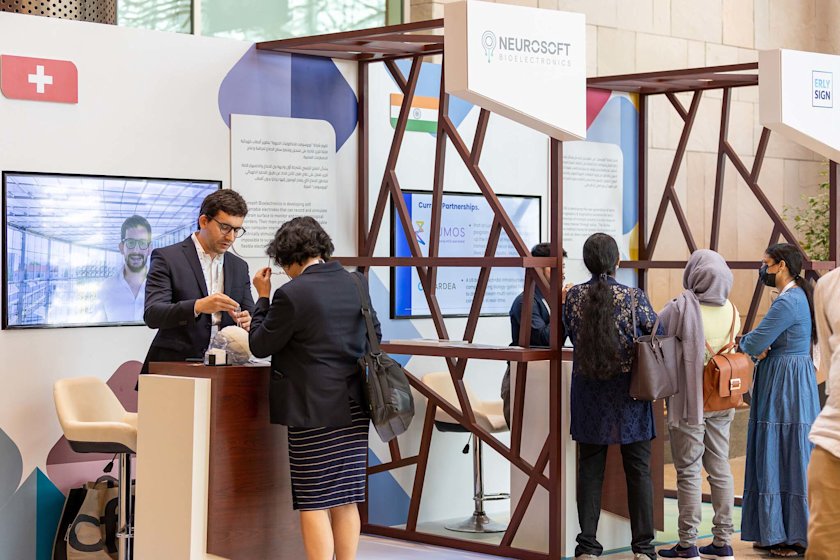
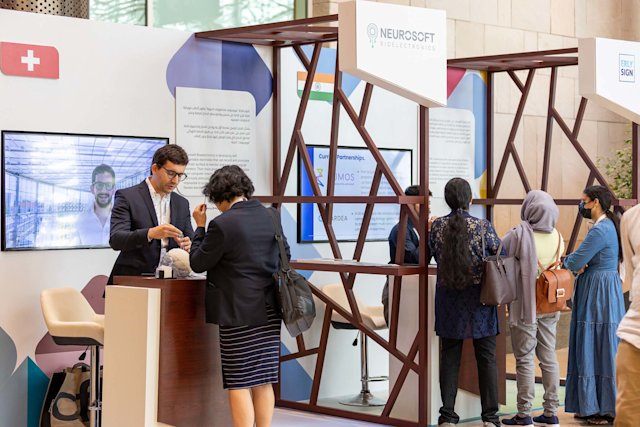
The opportunities that came from being shortlisted were extraordinary…It was a profound journey from the moment we were selected.
Precision Health
Breaking New GroundMeanwhile, a piece of healthcare history was made at Education City, as QF’s pioneering women’s and children’s hospital and medical research center, Sidra Medicine, became the first hospital in Qatar – and only the fifth worldwide – to administer a revolutionary gene therapy medication.
Elevidys is the only such medication available to treat Duchenne Muscular Dystrophy, the most common inherited muscle disorder which can start to affect children between the ages of two and three years. It is now being administered in Qatar through Sidra Medicine’s gene therapy program, which provides life-saving treatment for rare genetic disorders.
And a study by QF’s Qatar Precision Health Institute and QF member Hamad Bin Khalifa University’s (HBKU) College of Health and Life Sciences revealed important insights into the genetic basis of diseases among the Qatari population.
The research, published in the European Journal of Human Genetics, found that 3.5 percent of Qataris carry medically actionable genetic variants, a finding that could transform personalized medical treatments in the region by supporting the development of targeted medical interventions.
Meanwhile, a piece of healthcare history was made at Education City, as QF’s pioneering women’s and children’s hospital and medical research center, Sidra Medicine, became the first hospital in Qatar – and only the fifth worldwide – to administer a revolutionary gene therapy medication.
Elevidys is the only such medication available to treat Duchenne Muscular Dystrophy, the most common inherited muscle disorder which can start to affect children between the ages of two and three years. It is now being administered in Qatar through Sidra Medicine’s gene therapy program, which provides life-saving treatment for rare genetic disorders.
And a study by QF’s Qatar Precision Health Institute and QF member Hamad Bin Khalifa University’s (HBKU) College of Health and Life Sciences revealed important insights into the genetic basis of diseases among the Qatari population.
The research, published in the European Journal of Human Genetics, found that 3.5 percent of Qataris carry medically actionable genetic variants, a finding that could transform personalized medical treatments in the region by supporting the development of targeted medical interventions.
Adding a treatment protocol for Duchenne Muscular Dystrophy is another milestone for Sidra Medicine, showcasing our leadership as an expert in the field of personalized medicine for children with genetic diseases.
This study not only enhances our understanding of the genetic predispositions in the Qatari population, but also establishes a solid foundation for personalized healthcare strategies in Qatar.
Precision Health
Mapping the Path to HealthHealthcare advancements at Education City over the summer also included the creation of an intricate molecular map of the human body by researchers at QF partner university Weill Cornell Medicine-Qatar (WCM-Q) – which can support discovery of the underlying factors of diseases.
Meanwhile, WCM-Q teamed up with the University of São Paulo to host a global congress on precision health innovations and education, while three of its alumni were among the inaugural recipients of the Qatar Medical Specialization Certificate, which ensures the highest global standards of medical practice in Qatar.
Faculty and students from QF partner university Georgetown University in Qatar (GU-Q), added their voices to discussions about the teaching and learning of bioethics as Doha staged the 17th World Congress of Bioethics, the largest global gathering of experts in this field.
And in a worldwide field of almost 1,000 applicants, GU-Q student Ranneme Abu-Hajar was chosen as one of just 15 Rangel Scholars for 2024, an honor awarded by the US State Department and Harvard University that nurtures future leaders in public service and international diplomacy.
Healthcare advancements at Education City over the summer also included the creation of an intricate molecular map of the human body by researchers at QF partner university Weill Cornell Medicine-Qatar (WCM-Q) – which can support discovery of the underlying factors of diseases.
Meanwhile, WCM-Q teamed up with the University of São Paulo to host a global congress on precision health innovations and education, while three of its alumni were among the inaugural recipients of the Qatar Medical Specialization Certificate, which ensures the highest global standards of medical practice in Qatar.
Faculty and students from QF partner university Georgetown University in Qatar (GU-Q), added their voices to discussions about the teaching and learning of bioethics as Doha staged the 17th World Congress of Bioethics, the largest global gathering of experts in this field.
And in a worldwide field of almost 1,000 applicants, GU-Q student Ranneme Abu-Hajar was chosen as one of just 15 Rangel Scholars for 2024, an honor awarded by the US State Department and Harvard University that nurtures future leaders in public service and international diplomacy.
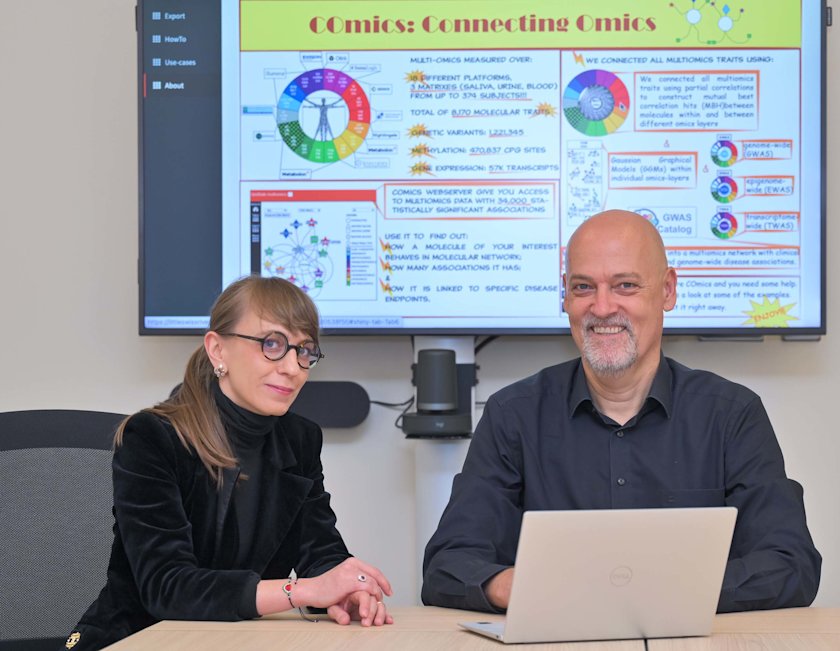
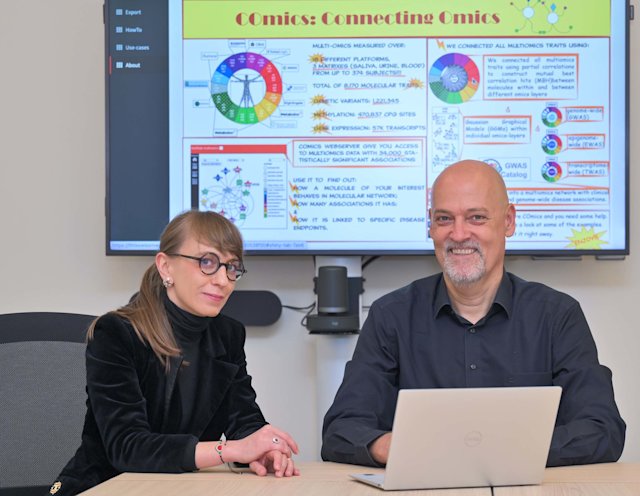
As part of our commitment to enhancing the entire health span, we must work together to build a future where healthcare is participatory, proactive, and precise.
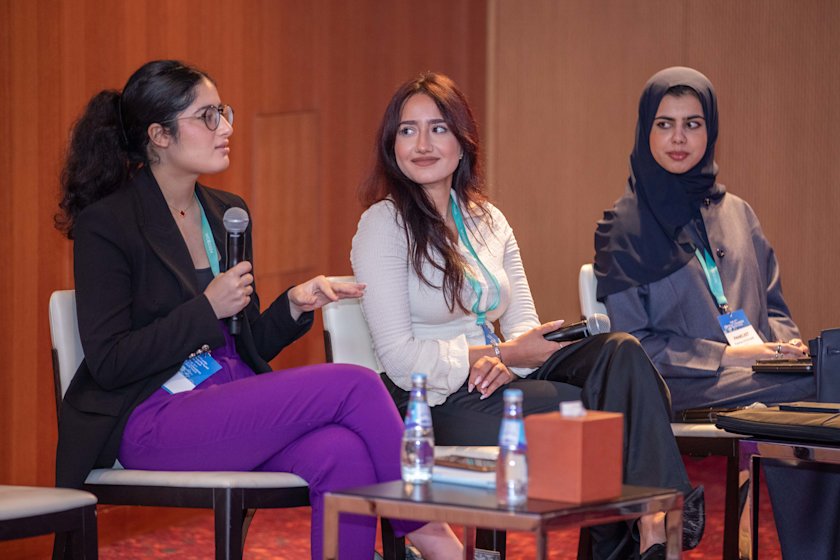
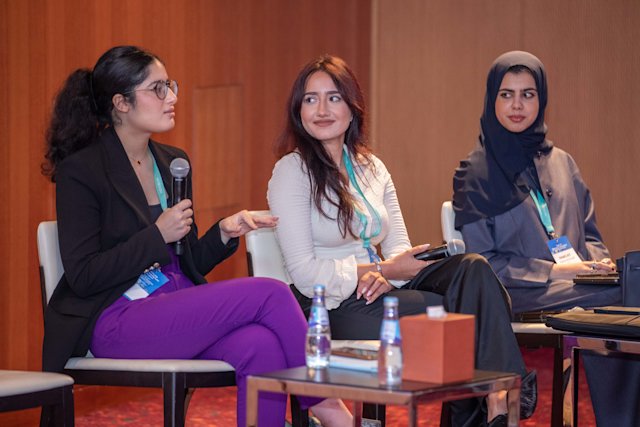
Artificial Intelligence
Connecting Faiths, Advancing InclusionAn interfaith meeting between a QF academic and Pope Francis, the head of the Catholic Church, emphasized how continuing relations and dialogue between Muslims and Christians on society’s most pressing issues is pivotal for humanity.
During his audience with Pope Francis, Dr. Recep Şentürk, Dean of QF member HBKU’s College of Islamic Studies (CIS), presented the pontiff with a copy of The Covenants of the Prophet Muhammad: Historical Legacy & Contemporary Human Rights.
Meanwhile, HBKU’s College of Public Policy signed an agreement with the International Organization for Migration to create a policy program for education and research surrounding migration in Qatar and the region; and, through research carried out with Ethiopia’s Hawassa University, produced recommendations for ensuring everyone has access to clean water and sanitation.
And Qatar’s leading telecommunications operator and ICT provider, Ooredoo, announced it would provide an estimated QAR2.8 million to HBKU’s Qatar Center for Quantum Computing (QC2), to support the center’s pioneering project to build Qatar’s first quantum communication testbed.
An interfaith meeting between a QF academic and Pope Francis, the head of the Catholic Church, emphasized how continuing relations and dialogue between Muslims and Christians on society’s most pressing issues is pivotal for humanity.
During his audience with Pope Francis, Dr. Recep Şentürk, Dean of QF member HBKU’s College of Islamic Studies (CIS), presented the pontiff with a copy of The Covenants of the Prophet Muhammad: Historical Legacy & Contemporary Human Rights.
Meanwhile, HBKU’s College of Public Policy signed an agreement with the International Organization for Migration to create a policy program for education and research surrounding migration in Qatar and the region; and, through research carried out with Ethiopia’s Hawassa University, produced recommendations for ensuring everyone has access to clean water and sanitation.
And Qatar’s leading telecommunications operator and ICT provider, Ooredoo, announced it would provide an estimated QAR2.8 million to HBKU’s Qatar Center for Quantum Computing (QC2), to support the center’s pioneering project to build Qatar’s first quantum communication testbed.
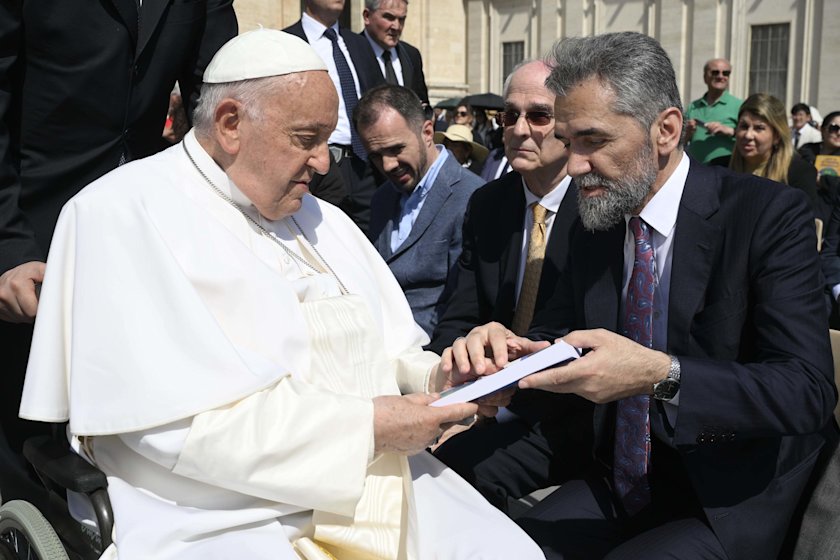
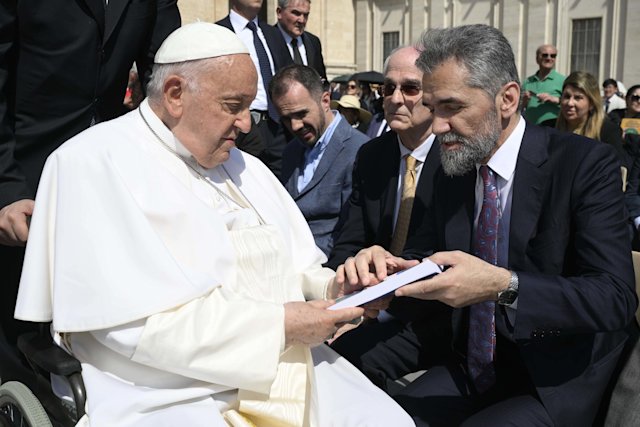
Despite conceptual differences, Islam and Christianity share an enduring commitment to universal human rights…open dialogue between both faiths remains essential.
The QC2 quantum communication testbed will:
- Harness quantum cryptography for more secure communications
- Be the cornerstone of Qatar’s future quantum networks
- Provide a basis for next-generation quantum internet in Qatar
We believe this initiative will lead to significant breakthroughs, strengthen our commitment to cutting-edge technology, and benefit the country’s mission to become a regional hub in technological innovation and security.
Social Progress
Illuminating ArabicCelebrating and promoting the Arabic language was at the center of activity across QF’s ecosystem over the summer – not only in Qatar, but beyond.
Students from across the UK participated in Qatar Foundation International’s (QFI) annual Arabic Speaking Competition, with the winners being awarded at a ceremony at the University of Oxford – which, with QFI, hosted a forum that explored the next steps for conducting research into teaching and learning Arabic in schools.
The Media Majlis museum at QF partner university Northwestern University in Qatar examined the Arabic language from the perspective of the past, present, and future, as its newest exhibition opened. ‘The Limits of My Language Are The Limits of My World’ explored the significance, influence, and impact of Arabic as it faces the challenge of misrepresentation in the digital age.
And regional heritage preservation efforts were boosted as Education City-based Qatar National Library partnered with the International Association of Sound and Audiovisual Archives (IASA) to translate four of the association’s key publications into Arabic, the intention being for these to support the use of IASA’s expertise in preserving and disseminating the region’s cultural heritage.
Celebrating and promoting the Arabic language was at the center of activity across QF’s ecosystem over the summer – not only in Qatar, but beyond.
Students from across the UK participated in Qatar Foundation International’s (QFI) annual Arabic Speaking Competition, with the winners being awarded at a ceremony at the University of Oxford – which, with QFI, hosted a forum that explored the next steps for conducting research into teaching and learning Arabic in schools.
The Media Majlis museum at QF partner university Northwestern University in Qatar examined the Arabic language from the perspective of the past, present, and future, as its newest exhibition opened. ‘The Limits of My Language Are The Limits of My World’ explored the significance, influence, and impact of Arabic as it faces the challenge of misrepresentation in the digital age.
And regional heritage preservation efforts were boosted as Education City-based Qatar National Library partnered with the International Association of Sound and Audiovisual Archives (IASA) to translate four of the association’s key publications into Arabic, the intention being for these to support the use of IASA’s expertise in preserving and disseminating the region’s cultural heritage.
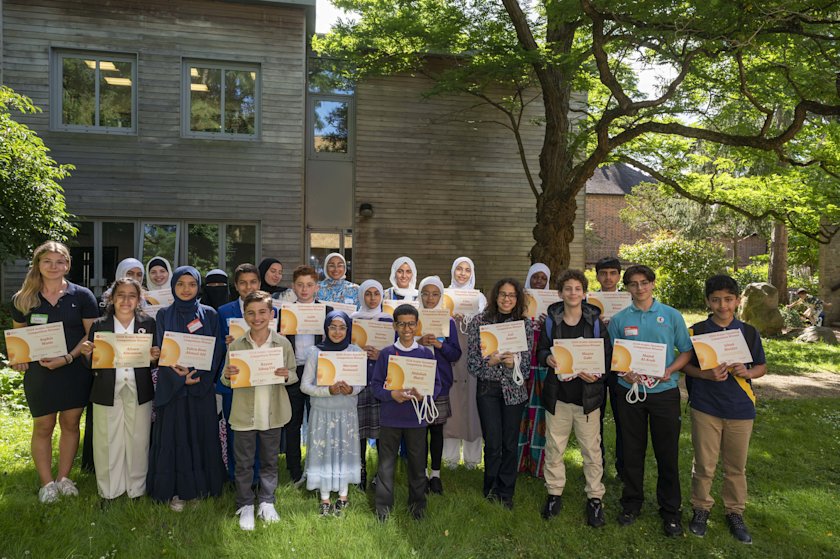
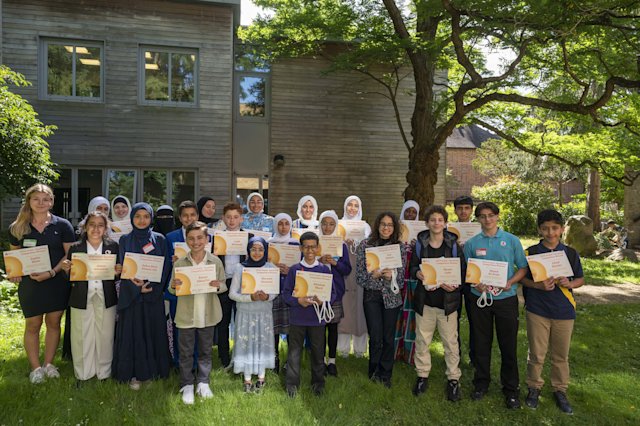
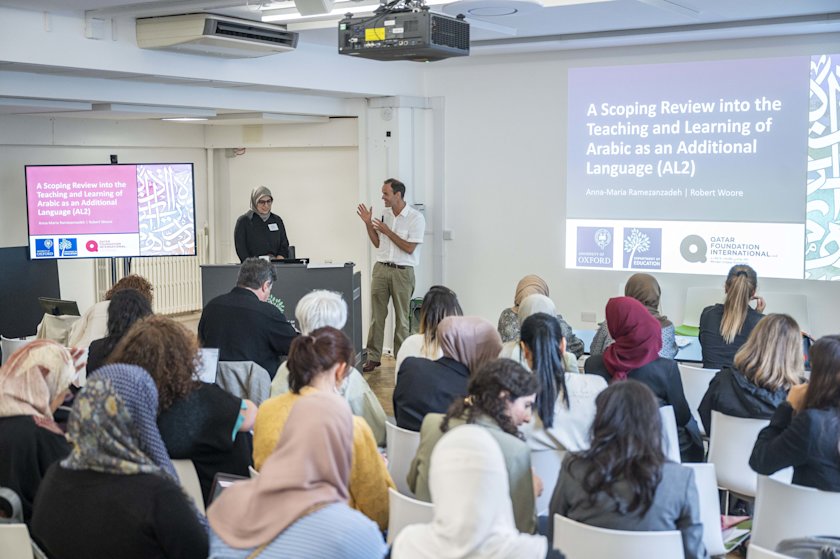
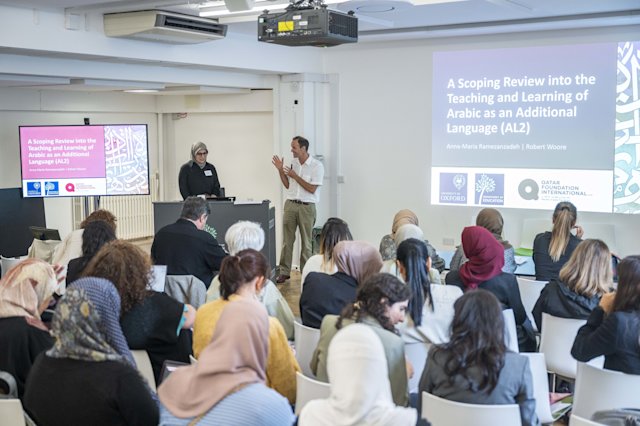
By making these essential publications accessible in Arabic, we aim to empower regional institutions and professionals to safeguard their cultural heritage for future generations.
Progressive Education, Sustainability
Non-Stop LearningSchool might have been out, but learning remained in full swing at Education City over the summer – including at QF’s Mukhayamna 2024 summer camp.
The seven-week program, organized by QF’s Pre-University Education, featured activities that developed the skills of students from schools across Qatar in quantum computing, performing arts, sports, and leadership, while fostering Islamic values and Qatari cultural identity.
Students from two QF schools joined a Ministry of Environment and Climate Change initiative that helps preserve Qatar’s marine life, releasing endangered baby turtles at Fuwairit Beach. Meanwhile, local and international high school students explored careers in medicine through a program at WCM-Q, which also partnered with fellow QF partner university Texas A&M University at Qatar (TAMUQ) to sharpen students’ physics and problem-solving skills.
And through HBKU, young learners were able to explore biomedical research and quantum computing, while QF partner university Carnegie Mellon University in Qatar (CMU-Q) invited students to create games and animations through its ninth Alice Middle East Programming Competition, and GU-Q international affairs students used their summer to immerse themselves in projects blending media, technology, and communication in the university’s Innovation Lab.
School might have been out, but learning remained in full swing at Education City over the summer – including at QF’s Mukhayamna 2024 summer camp.
The seven-week program, organized by QF’s Pre-University Education, featured activities that developed the skills of students from schools across Qatar in quantum computing, performing arts, sports, and leadership, while fostering Islamic values and Qatari cultural identity.
Students from two QF schools joined a Ministry of Environment and Climate Change initiative that helps preserve Qatar’s marine life, releasing endangered baby turtles at Fuwairit Beach. Meanwhile, local and international high school students explored careers in medicine through a program at WCM-Q, which also partnered with fellow QF partner university Texas A&M University at Qatar (TAMUQ) to sharpen students’ physics and problem-solving skills.
And through HBKU, young learners were able to explore biomedical research and quantum computing, while QF partner university Carnegie Mellon University in Qatar (CMU-Q) invited students to create games and animations through its ninth Alice Middle East Programming Competition, and GU-Q international affairs students used their summer to immerse themselves in projects blending media, technology, and communication in the university’s Innovation Lab.
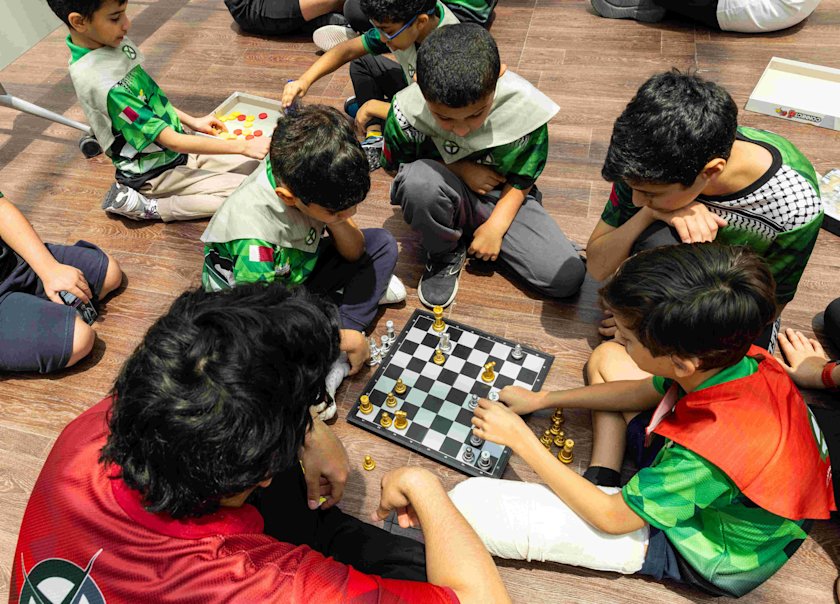
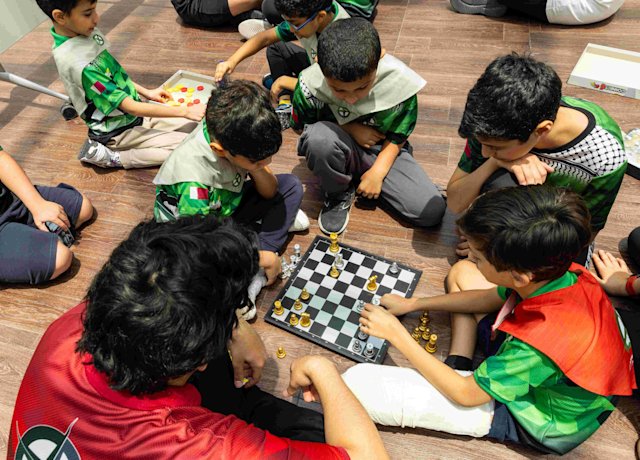
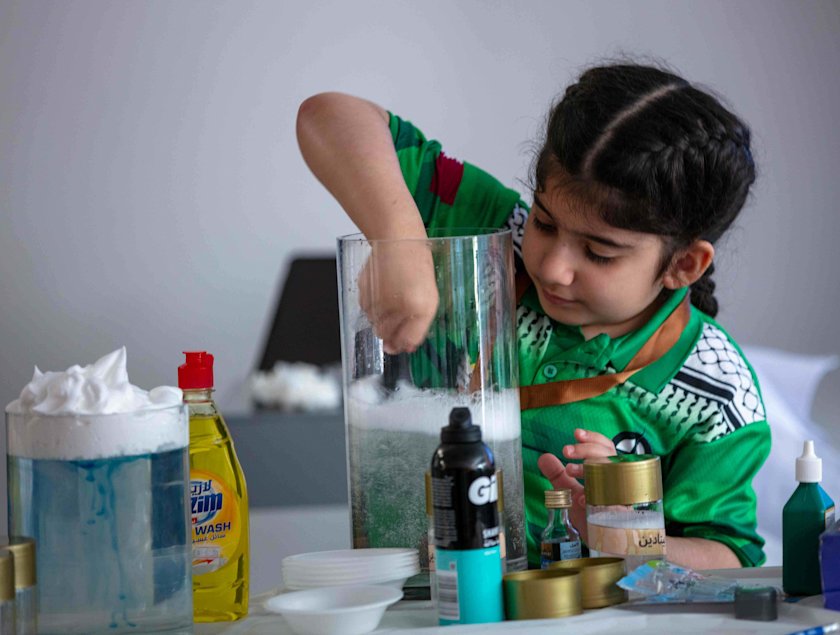
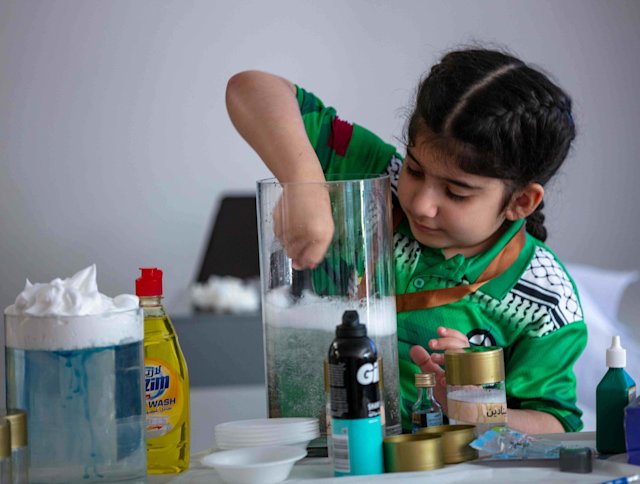
I learned to be more open-minded, collaborate effectively with others, and show kindness.
- 568 school students participated in Mukhayamna 2024, include 20 children from Gaza who were evacuated to Qatar.
- 83 students from 46 high schools participated in WCM-Q’s Summer Enrichment Programs.
- 23 students from 14 local and international high schools completed WCM-Q and TAMUQ’s Physics for Future Doctors Summer Program.
- 14 undergraduate students from universities in Qatar completed Qatar Biomedical Research Institute’s Summer Research Program.
- 22 students from 15 schools in Qatar attended Qatar Center for Quantum Computing’s summer school.
- 115 student teams from 50 schools participated in CMU-Q’s Alice Middle East Programming Competition.
Progressive Education
Welcomed into the CommunityAs August neared its end, a new academic year – full of excitement, anticipation, and the air of possibility – was ushered in.
Across Education City, universities gave a warm and inspiring welcome to both their newest students and those returning to their campuses, among them HBKU, GU-Q, Northwestern Qatar, WCM-Q, and Virginia Commonwealth University School of the Arts in Qatar.
And the QF welcome was not just reserved for students, with hundreds of new teachers and administrators gathering at an induction day organized by the Education Development Institute (EDI) – part of QF’s Pre-University Education – and designed to promote collaboration and strengthen connections between educators.
Among them was Abdulaziz Ali Yahya, who joined QF’s Tariq Bin Ziad School as a social worker, and said: “Qatar Foundation stands out not only for its exceptional programs, but also for its profound understanding and support for those who aim to strengthen society.
“The success stories of its students and graduates are clear evidence of its significant impact, and I look forward to playing a role in shaping the future and contributing to an organization that builds a strong and enduring foundation for Qatari society.”
As August neared its end, a new academic year – full of excitement, anticipation, and the air of possibility – was ushered in.
Across Education City, universities gave a warm and inspiring welcome to both their newest students and those returning to their campuses, among them HBKU, GU-Q, Northwestern Qatar, WCM-Q, and Virginia Commonwealth University School of the Arts in Qatar.
And the QF welcome was not just reserved for students, with hundreds of new teachers and administrators gathering at an induction day organized by the Education Development Institute (EDI) – part of QF’s Pre-University Education – and designed to promote collaboration and strengthen connections between educators.
Among them was Abdulaziz Ali Yahya, who joined QF’s Tariq Bin Ziad School as a social worker, and said: “Qatar Foundation stands out not only for its exceptional programs, but also for its profound understanding and support for those who aim to strengthen society.
“The success stories of its students and graduates are clear evidence of its significant impact, and I look forward to playing a role in shaping the future and contributing to an organization that builds a strong and enduring foundation for Qatari society.”
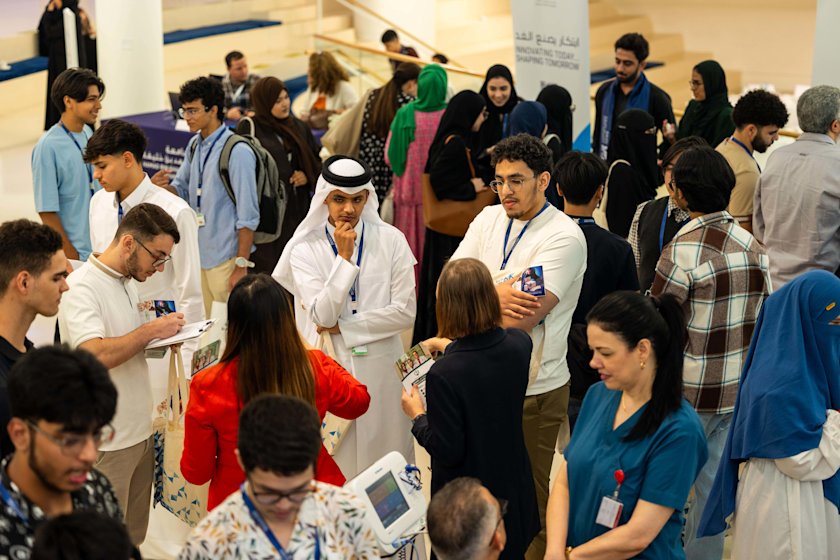
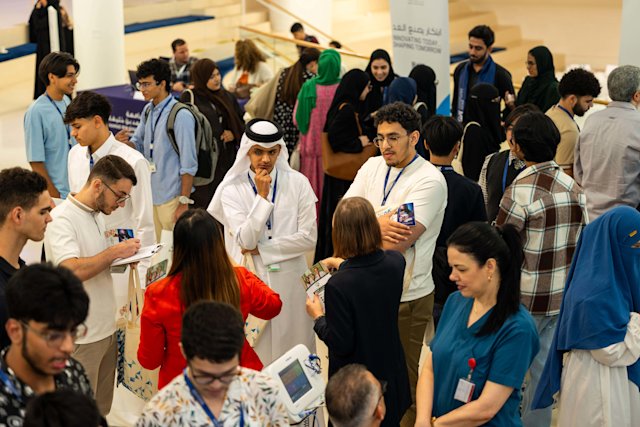
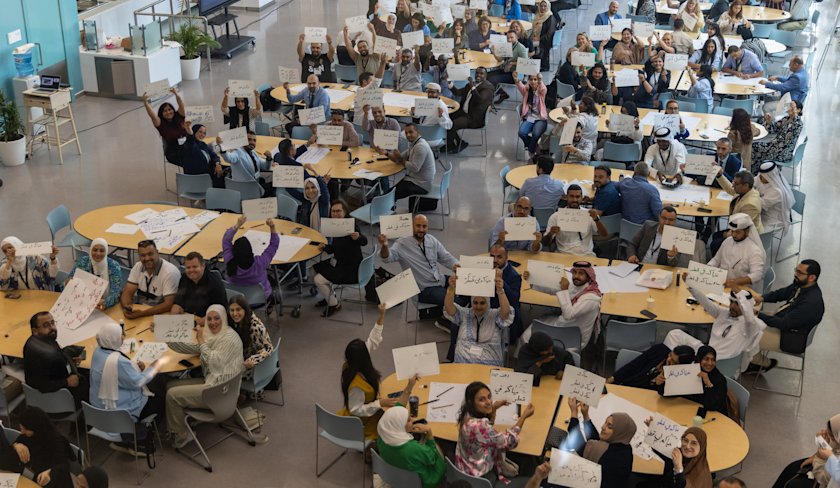
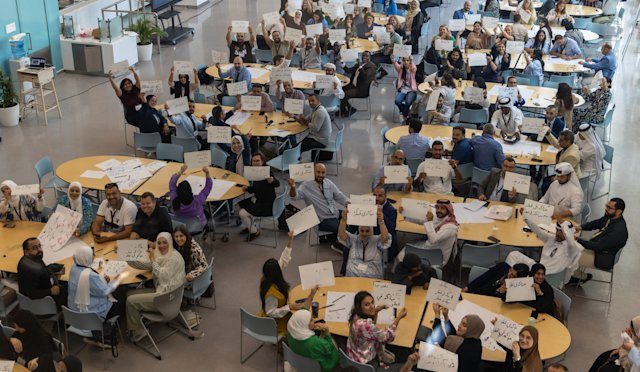
The goal of this event is to bring together new teachers, fostering connections that often evolve into long-lasting professional relationships.
- 350+ new teachers and administrators were welcomed to QF ahead of the new academic year.
- 569 new students – including 140 Qataris – joined HBKU’s student body for the 2024-25 academic year.
- 132 new students – including 3 from Palestine – became part of GU-Q’s student community.
- 55 students – including 20 Qataris – entered WCM-Q’s pre-medical program, with 19 joining its Foundation Program, 17 of whom are Qatari.
Progressive Education, Artificial Intelligence
Looking to the FutureAnd reflecting the integrated nature of QF’s unique ecosystem of education, where different universities stand just yards from each other – opening up a world of learning horizons – QF’s Marhaba event saw students from across Education City come together to discover just what their journey holds.
The annual gathering, titled ‘Education 2.0: Pioneering the Future Together’, included a focus on Artificial Intelligence and the impact it will have on the future lives of students, as speakers encouraged learners to explore, innovate – and use AI tools beneficially and responsibly.
“Embrace them, but watch out for the double-edged sword,” said Khaled A. Harras, Senior Associate Dean, CMU-Q. “Make sure to be using AI to improve your learning, not skip your learning.”
And GU-Q faculty member Dr. James Olsen’s message to students was: “You have to care about your education. And you’re going to have to learn about learning. And in terms of learning how to learn, one key thing you’ve got to know is: it takes effort.”
And reflecting the integrated nature of QF’s unique ecosystem of education, where different universities stand just yards from each other – opening up a world of learning horizons – QF’s Marhaba event saw students from across Education City come together to discover just what their journey holds.
The annual gathering, titled ‘Education 2.0: Pioneering the Future Together’, included a focus on Artificial Intelligence and the impact it will have on the future lives of students, as speakers encouraged learners to explore, innovate – and use AI tools beneficially and responsibly.
“Embrace them, but watch out for the double-edged sword,” said Khaled A. Harras, Senior Associate Dean, CMU-Q. “Make sure to be using AI to improve your learning, not skip your learning.”
And GU-Q faculty member Dr. James Olsen’s message to students was: “You have to care about your education. And you’re going to have to learn about learning. And in terms of learning how to learn, one key thing you’ve got to know is: it takes effort.”
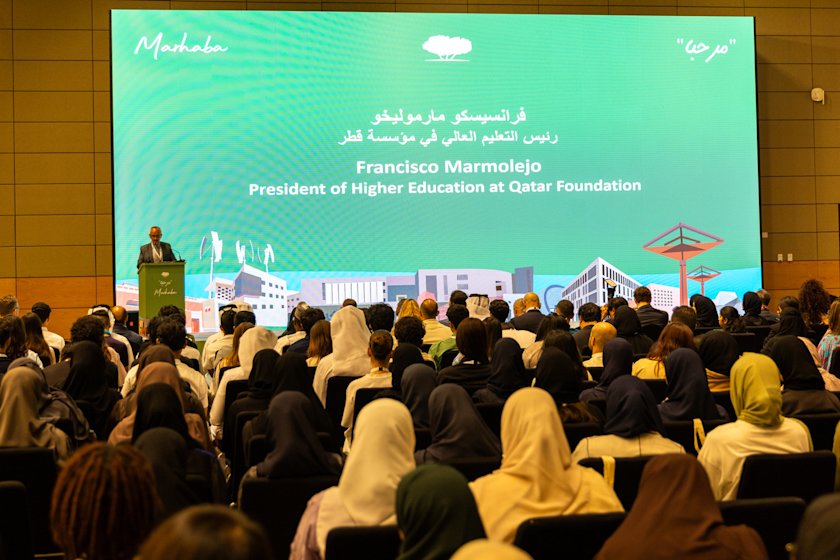
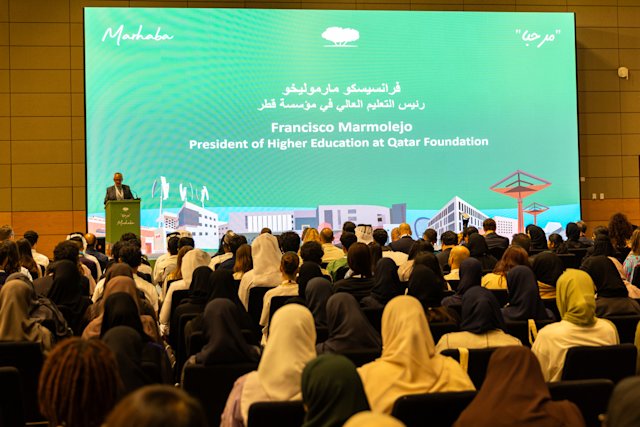
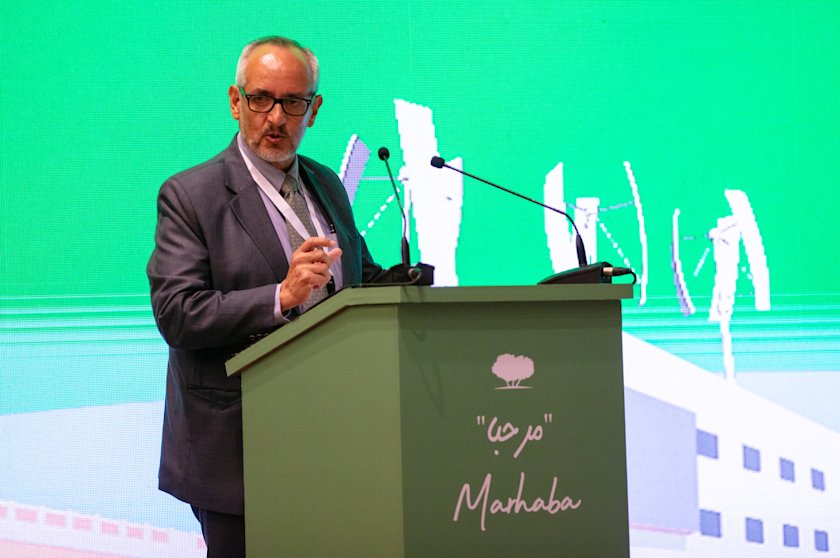
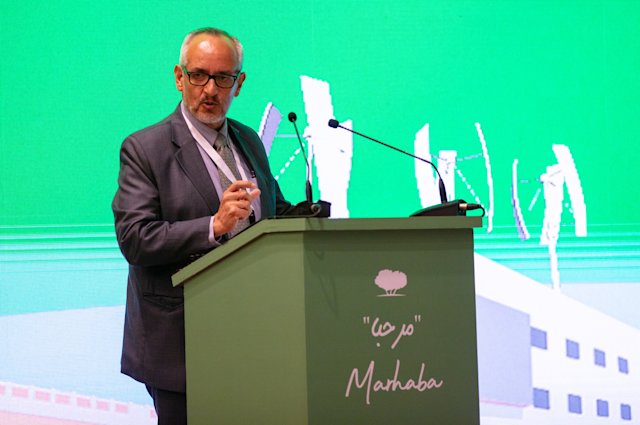
This is just the start. You have so much to look forward to. And at every step, this community of knowledge that you are now part of will be here to support you.
